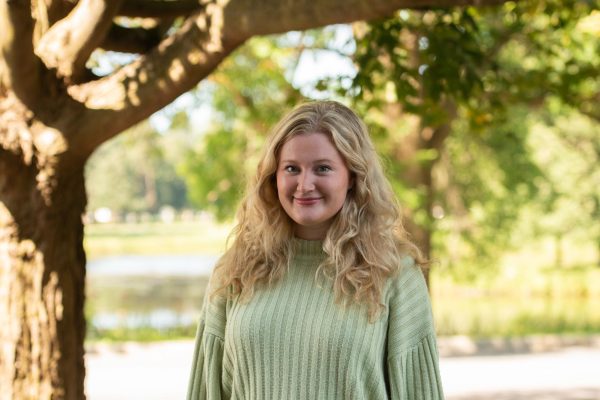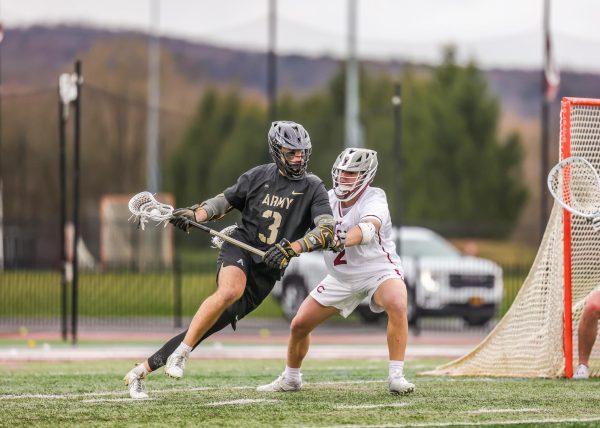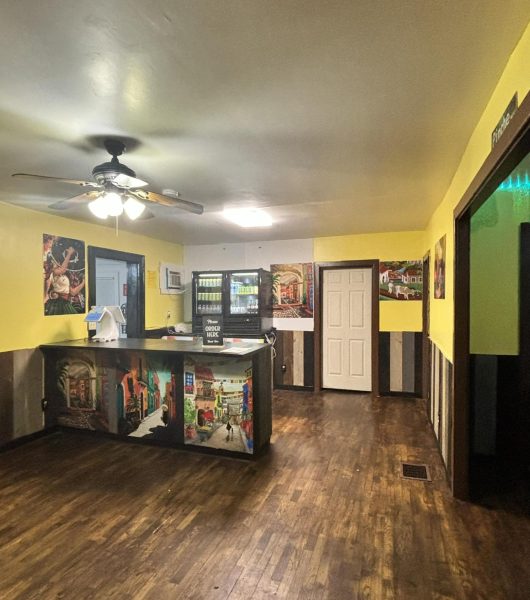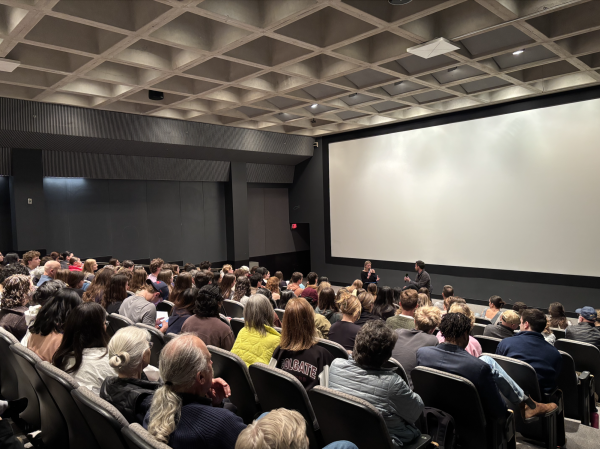OISS Wraps Up International Education Week With Discussion on Citizenship
As part of its International Education Week, the Office of International Student Services (OISS) closed out its festivities with an event entitled “Personal Journey to the U.S Citizenship and Finding Home.” The event, hosted in McGregory Hall on Friday, Nov. 12, featured a group of faculty panelists from various backgrounds and experiences who shared advice and personal anecdotes about their time arriving in the US. Topics ranged from the emotions that encompass citizenship to the process of acquiring a visa and their different experiences moving to the US.
Associate Dean and Director of International Student Services Kerra Hunter moderated the panel with a list of questions submitted by interested students prior to the discussion. Panelists included Assistant Professor of Educational Studies Sally Bonet, Institutional Research Associate Weijia Wang, OISS Coordinator Ani Murphy, Lecturer in University Studies Ferdinand von Muench and Senior Lecturer in Arabic Nady Abdal-Ghaffar. Hunter introduced the event by reflecting on where she calls home.
“I always tell people that the American citizenship test asks all the wrong questions. I personally think that the question they should ask on that test is: ‘What country do you root for during the Olympics?’ Because many of us, regardless of how many years we’ve been in this country, our answer will never be America. It will be our home country,” Hunter said.
From Hunter’s perspective, the U.S citizenship process questions applicants’ sense of American patriotism. This can become a complicated commitment for applicants of citizenship because it seemingly forces individuals to give up a part of their identity, according to Hunter. Following her introduction, Hunter asked panelists about the emotions that came with letting go of their country’s citizenship.
Abdal-Ghaffar moved from Egypt to the United States for a doctoral program. Abdal-Ghaffar recounted that moving to a different country made him feel like he did not belong in either place.
“Once you live away from home, when you go home, everybody looks at you and uses the term that we actually use [that means foreigner]. So I was a foreigner [to] them, and then somehow I became responsible for all the faults that the U.S. foreign policy is. And then get the same thing here. So when you are here, you know, everybody looks at you and you’re Muslim,” Abdal-Ghaffar said.
Bonet made similar remarks.
“When you go home, even if you don’t have American citizenship, [many people say] ‘Oh my God, you’re so American.’ What they’re saying is you’re really not from here,” Bonet said.
Bonet was born of Syrian descent in Sudan and then moved to Egypt at a young age. She then moved from Egypt to the U.S. when she was seventeen to pursue higher education with her family. Bonet eventually gave up her Egyptian citizenship to acquire U.S. citizenship, although she reported that neither citizenship represents who she is and her history. However, she did acknowledge the travel benefits and flexibility that come with a U.S. passport.
“Being able to have American citizenship has given me access to the home in a very weird way,” Bonet said. “I don’t [feel] American fully. I don’t feel Egyptian fully. I haven’t seen Sudan since I was three. So for those who aren’t from one place, it can be complicated.”
Every panelist offered different opinions and experiences regarding the visa and citizenship process in the U.S., granting international students in attendance an array of perspectives to consider. Senior Sowon Kim explained that she attended the event to hear the panelists’ personal experiences.
“I wanted to hear about how professors with international backgrounds came to stay in the United States,” Kim said. “The panels talked about the feeling of in-between, being seen as different in both home country and in the United States. They also talked about how we are adding so much to this country and campus just by being here. After the talk, my friend and I talked about how we felt understood. It made me feel very emotional.”
OISS intern senior Alex Tran, who helped advertise for the event, was similarly curious about what panelists might say about American citizenship.
“I know some panelists personally, and I would love to get their backstories to understand them a little more,” Tran said. “OISS gives amazingly honest and insightful advice about navigating the visa systems.”
Both Kim and Tran agreed that OISS is an important resource for international students on campus. At the end of the event, panelists shared their best advice for international students.
“Keep who you are, but use the opportunities. Take all the chances you might not have in any other country,” Murphy said.

Payton Gore is a senior from Baltimore, MD concentrating in marine freshwater science with a minor in sociology. She has previously served as a staff writer...







